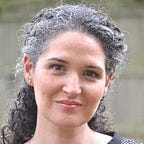Transforming Education: Vision Is One Thing, But How Do We Get There?
Our team will often ask adults to reflect on what they attribute to their own success in work and in life. Technical skills and knowledge often come up, as they should; academic skills play an instrumental role in our daily success. Yet, we also hear other skills and conditions named just as often as academics. People often name curiosity, sense of purpose, connection to culture and the power of relationships as drivers of success. This is why parents name life skills and well-being as top priorities for their children, and why at the Chan Zuckerberg Initiative we’re focused on the transformation of our education system toward one that encompasses both academic and non academic growth.
At CZI, we focus on the transformation of our education system toward one that serves the needs of the whole child, including academic development, social-emotional development, identity development, physical health, and mental health. We believe that neither race nor income should predict a child’s success. Our grantmaking is grounded in this focus and belief, which requires imagining a very different public education system.
Psychologists, cognitive scientists and other researchers have made tremendous leaps in our understanding of child and adolescent development. The science shows us that children’s social and emotional skills, their physical and mental health, and their ability to cultivate a sense of purpose all play a critical role in their ability to learn. Recent efforts like the National Commission on Social, Emotional and Academic Development and the Science of Learning and Development Alliance have made strides in synthesizing what we know, and brought more clarity to how this knowledge can influence a more holistic approach to education.
Our challenge today is two-fold: first, we must help educators bring this research to life in the classroom with accessible teaching tools and resources. Second, we must recognize the wisdom of the communities and educators who have raised, taught, and loved the children we seek to serve through our public education system. For too long, much of the knowledge about what best supports the learning and development of students was ignored. If we want to ensure that every child can reach their potential, we must integrate these lessons into the design of our schools and classrooms.
At CZI, we believe that partnerships that bring together researchers, communities, and educators are the path toward more holistic teaching practices and ultimately, a broader shift in our education system. These partnerships create opportunities to transfer our knowledge of how children learn and develop into practice by engaging educators and families who best understand the environments in which children learn and develop.
Our grantmaking supports these partnerships with three key principles in mind.
- Community involvement: A broader definition of student success must be informed by the strengths and needs of families and educators. For example, the team at Flourish Agenda, led by Dr. Shawn Ginwright, is working with community researchers and educators to better understand how we address trauma by focusing on the community’s strengths and assets that lead to healing.
- Educator-focused: Projects that address the realities that educators face — and engage them in developing solutions — have the greatest chance of being effective and sustainable. Our grant to build evidence for a whole child model centers the vision and leadership of school leader Cynthia Robinson-Rivers at Van Ness Elementary School in Washington, DC. Cynthia partners with Transcend Education to create practices and activities that support the social, emotional, and academic needs of every child.
- Continuous improvement: Our knowledge of child and adolescent development is dynamic and evolving, and we support partnerships that advance the field. Research by the Search Institute on the science of relationships informed Along, a tool that supports teachers in helping each child feel seen and understood. We partnered with the Search Institute throughout the development of Along and support ongoing research to strengthen the cultural relevance of their framework for developmental relationships.
Transforming our education system into one grounded in the evolving science of human development cannot happen without deep partnerships between researchers, educators, and communities. These collaborations are building the evidence base for the equitable learning environments that we know students need to thrive.
